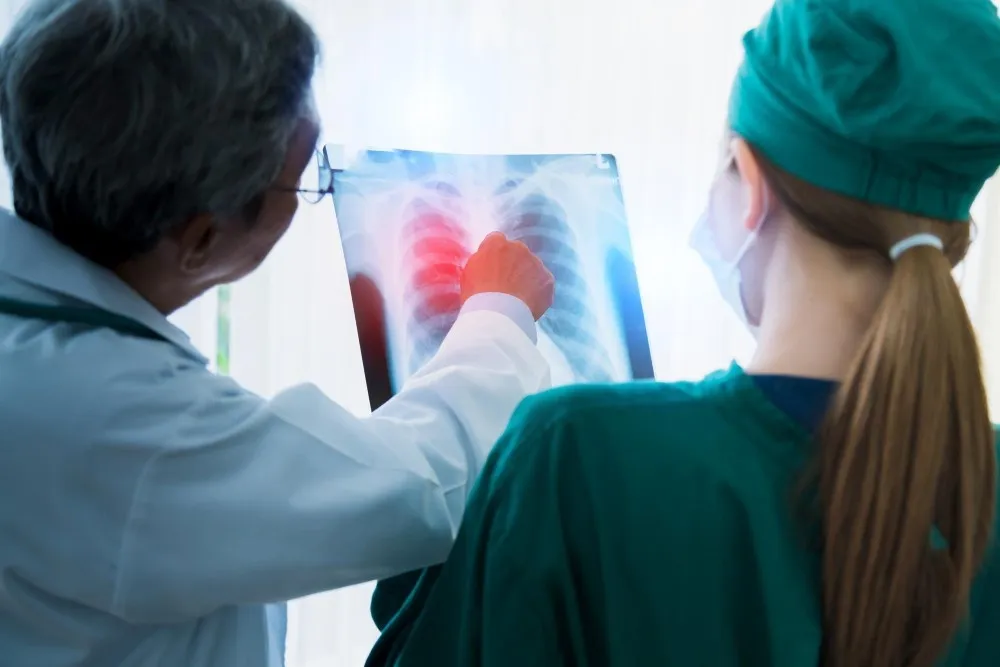Though there are no proven ways of preventing cancer, it is possible to reduce your risks of getting it. This is because most risk factors of cancer include bad lifestyle choices like smoking or being overweight - things you can control to reduce your risk.
Leading a healthy lifestyle can make a big difference and lower your chances of developing certain cancers. Here's how:
Eat a balanced, healthy diet
A great amount of research is on to establish the direct link between foods and diets to prevention of cancer. However, with the involvement of multiple factors and the number of years it takes for cancer to develop, this study topic is not an easy one. Overall, research does show that eating certain food groups (rather than specific foods or nutrients) leads to a reduced risk of cancer.
A healthy and balanced diet includes the following:
- At least five portions of fruits and vegetables
- Plenty of wholegrain foods and foods rich in fibre
- Meat, fish, eggs, beans and other non-dairy sources of protein
- Milk and dairy foods
- A small amount of fat and sugar rich foods and drinks
A healthy diet ensures that the body receives all nutrients it requires for normal and optimal functioning.
Do not smoke or use tobacco
Any type of tobacco consumption is a form of invitation to cancer. Smoking has been linked to various kinds of cancers like cancer of the bladder, lung, kidney and cervix. Chewing tobacco has been shown to increase the incidence of cancer of the oral cavity and pancreas. Even if you do not smoke yourself, second-hand smoke from those around you can cause the same damage (like an increased risk to lung cancer) to your health as in those who smoke.
Deciding to quit smoking is one of the best health decisions you can take for yourself. Quitting smoking is not easy for many smokers, and they need help from doctors or stop-smoking products or strategies like fake cigarettes to withdraw the addiction.
Limit alcohol intake
Alcohol consumption is linked to following cancers:
- Mouth cancer
- Oesophageal cancer
- Cancer of pharynx or larynx
- Colorectal cancer in men
- Breast cancer
The normal limit for alcohol consumption in women is two-three units a day or most days a week while for men it is three-four units a day or on most days of the week.
Maintain a healthy body weight
Being overweight increases your risk to certain cancers like bowel cancer, oesophageal cancer, pancreatic cancer, breast cancer (in women who have undergone menopause), cancer of the uterus, and kidney cancer.
You can reduce you risk of cancer by maintaining your weight in the healthy body metabolic index (BMI). Exercise and being physically active not only keeps your weight in check but also offers a range of health benefits. A basic goal for obtaining adequate physical activity in your routine is 30 minutes of activity during the day - if you can do more, even better.
Protect yourself from the sun
Skin cancer is one of the most common types of cancer, and it can be prevented through the following simple tips:
- Avoid midday sun - Avoid being outside under the sun between 11am and 4pm, as the sun's rays are the strongest during this period.
- Find shade - When outdoors, try to stay in shade as far as possible. An umbrella, hat and sunglasses are also useful.
- Choose right clothing for outdoors - Loose-fitting clothes in bright or dark colours reflect more ultraviolet radiation as compared to bleached cotton or pastel clothing.
- Wear sunscreen - Apply sunscreen about 30 minutes before you venture out in the sun.
Ensure your immunizations are up-to-date
Protecting oneself from certain viral infections can prevent certain cancers. Immunize yourself against the following viruses:
- Hepatitis B - Hepatitis B infection increases the risk of liver cancer. High-risk adults who are sexually active individuals involved in more than one relationships, individuals carrying sexually transmitted diseases, homosexual partners, drug users and healthcare workers exposed to body fluids, must get themselves vaccinated against Hepatitis B.
- Human papillomavirus (HPV) - HPV is transmitted sexually and can cause cervical and other genital cancers, along with squamous cell cancers of the head and neck.
Conduct safe practices
Avoiding risky behaviours that may lead to infections can prevent certain cancers. These include:
- Practice safe sex - HIV increases the risk of cancer of the liver, lung, anus and genital organs, and cervical cancer. Using condom and limiting the number of sexual partners can prevent it.
- Do not share needles - Drug abuse or addiction often involves injecting needles. Sharing of needles can increase the risk of liver cancer and also increase the chances of contracting HIV, Hepatitis B and C infections, and must be avoided.
Get regular check-ups and screenings
Self-exams and screenings at your local hospital can aid early detection of various types of cancers such as cancer of the skin, breast, cervix, colon and prostrate. Know your body to recognise any abnormal changes like lumps or unexplained bleeding in order to get timely medical help and care.
Join our Cancer group for regular updates.
List of Best Cancer Doctors across India
Best Oncologist in Delhi NCR | Best Oncologist in Mumbai Region | Best Oncologist in Kolkata | Best Oncologist in Hyderabad | Best Oncologist in Chennai |
Sources: "Cancer prevention: 7 tips to reduce your risk," MayoClinic.com, Mayo Clinic Staff, https://www.mayoclinic.org/healthy-living/adult-health/in-depth/cancer-prevention/art-20044816 "Reduce your cancer risk," NHS.uk, https://www.nhs.uk/Livewell/preventing-cancer/Pages/diet-and-cancer.aspx "Seven (Easy to Find) Foods That May Help Prevent Cancer," WebMD.com, Elizabeth Lee, https://www.webmd.com/cancer/features/seven-easy-to-find-foods-that-may-help-fight-cancer Image courtesy of [hyena reality] / FreeDigitalPhotos.net
Reviewed by







